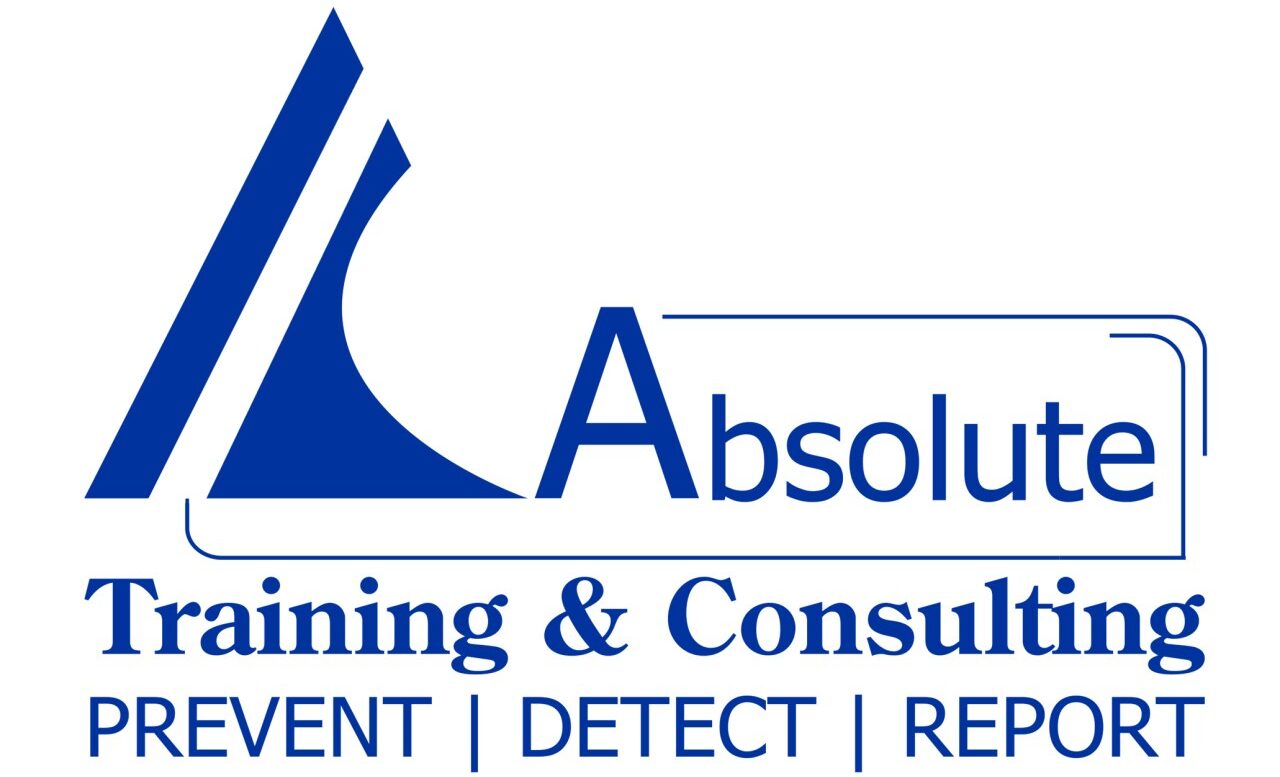PREVENT | DETECT | REPORT
Absolute training & consulting offers comprehensive training in FCC (Financial Crime Compliance) to management and employees of financial services institutions, Insurance companies, Microfinance Institutions and Savings & credit co-operative societies. (SACCOs).
Preventing
Our Customer Due Diligence (CDD) training is critical in identifying clients and understanding their activities and nature of transactions to spot potential warning signs of money laundering,terrorist financing and other financial crimes.
Detecting
We equip learners with knowledge and skills in identifying unusual activities,behavioral and transactional red flags and determine if the activity identified meets reporting threshold.
Reporting
We train our learners how to report suspicious transactions by raising SAR (Suspicious Activity Reports) without tipping off the client for further investigation and reporting to the relevant authorities
Our clients
Financial services institutions are required by law to provide training to their employees to enable them comply with provisions of Anti Money Laundering and Counter Terrorist Financing legislation.
We partner with various institutions in training their management and employees to gain clear understanding of regulatory and compliance requirements as well as obligations placed on individuals employees and institutions in law and by regulatory authorities.
BANKS
Microfinance institutions
Insurance Companies
sacco’s
Our Courses
Our online courses are dynamic, interactive and relevant to every organization’s employees required skills set and training needs by equipping them with deep understanding of the critical risks posed by money laundering,terrorist financing and other financial crimes.
Every reputable financial organization requires good FCC (Financial Crime Compliance) processes with adequate controls to prevent, detect and report suspicious incidences of money laundering and terrorist financing. Non-compliance results in punitive financial penalties hence the need to sufficiently train employees, build robust systems and design proper financial crime compliance (FCC) processes.
Learners can sign up and take these courses, and at the end of the course complete an assessment and attain a pass mark of 80% to successfully complete the module and receive a certificate.

Anti Money Laundering and Counter Terrorist financing (AML/CTF)
- What is meant by money laundering and terrorist financing.
- Crimes that lead to Money laundering and their impact.
- Identifying unusual activities and behaviors
- What happens when banks and their employees get it wrong.
- Possible consequences for individuals (employees), management and the bank.
- What appropriate action to take when you know or suspect an attempt to commit financial crime or when you know one may have taken place.

Data protection and Cyber security
- Cyber crimes (hacking)
- Identity theft fraud
- Card skimming
- Swim swap fraud
- Phishing.

Rejecting Bribery & Corruption
- Internal code of conduct to deter bribery and corruption in organizations
- Procurement fraud

Client Due Diligence (CDD) and Know Your Client (KYC) procedures.
- Client identity checks & Screening
- Beneficial ownership and company structure unwrapping
- Understanding client's nature of business and level of transactions
- prohibited clients and sanctions.

Politically Exposed persons (PEP)
- Categories of PEPs
- Relationships involving PEPs
- Risks posed by PEPs

Suspicious activity monitoring and Reporting.
- How to identify suspicious activities
- Transaction monitoring
- Completing suspicious activity reports (SAR)
- How to report suspicious activities
WHY?
Kenya is seen as an economic hub in Africa hence a prime target for money laundering and financial crimes such as arms,drugs & human trafficking, fake gold scams and tax evasion.Cyber-attacks have increased significantly driven by increased adoption of digital banking and e-commerce platforms by financial institutions, State agencies, healthcare providers, energy and utilities companies.
Non-compliance with money laundering control obligations could result in significant regulatory and reputational damage as well as financial penalties resulting in financial losses or even withdrawal of licenses for serious breaches of the rules on AML/CTF.
CEOs of private entities face a jail term of up to 10 years and a fine of Kes 1 million in case they fail to set up internal code of conduct to deter bribery and corruption in their organizations.
Visit Us
Eden Court,Hse no 1 Bamboo Street
Open Hours
24 hours, everday.
